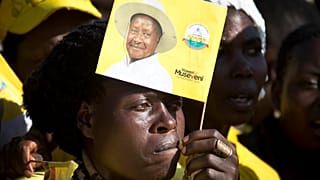France
Two investigating judges sitting in Paris cited a lack of evidence in dismissing the case Thursday.
The dismissal means 82-year-old Agathe Habyarimana's chance of geting tried for conspiracy to commit the 1994 genocide in Rwanda has significantly reduced.
The National Anti-Terrorism Prosecutor's Office said it would appeal the decision.
In the dismissal order, the judges said there was no evidence pinning Habyarimana as a genocide perpetrator, but only as a victim of a terror attack in which her husband - then President Juvenal Habyarimana - was killed.
Habyarimana's assassination in a plane bombing on April 6, 1994, sparked the genocide in which approximately 800,000 individuals — primarily Tutsis and moderate Hutus—were killed.
A complaint filed in 2008 by the Civil Parties Collective for Rwanda (CPCR) prompted a French investigation into her alleged complicity in genocide and crimes against humanity.
In February 2022, the investigating judge declared the case closed, indicating a probable dismissal. The defense contended that the duration of the investigation was excessive.
Nevertheless, in August 2022, the anti-terrorism prosecutor's office sought additional hearings and cross-examinations, labeling it one of the most intricate cases still being examined.
During the genocide in 1994, approximately 800,000 individuals—primarily Tutsis and moderate Hutus—were killed by the Rwandan Armed Forces and extremist Hutu militias.













00:53
United Nations says more than 50 Congolese refugees have died in Burundi
01:51
Rebel group holds funeral for victims of drone strike in eastern DR Congo
00:59
DRC accuses Rwanda of killing 1,500 civilians in past month
01:03
Controversy grows in DRC over alleged tolerance of anti-Tutsi rhetoric
Go to video
Fresh M23 clashes shatter peace hopes in eastern DR Congo
Go to video
South Africa urges effective ceasefire and inclusive dialogue to end DRC conflict